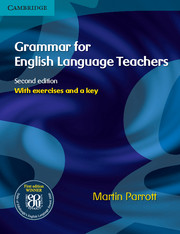Summary
Key considerations
Learners often have difficulty mastering the forms of the past simple. In particular, they often need opportunities to study and practise:
• question and negative forms.
• irregular past tense forms.
• the spelling of regular past tense forms.
We generally teach learners to choose between different past tenses according to when the events take place in relation to some fixed time or event in the past. We also sometimes focus on the narrative functions of the past perfect simple and the past continuous, and some learners find this is easier to understand and use as a rule of thumb. Narratives also provide a valuable opportunity for learners to practise these tenses.
When our students are studying a tense for the first time, we usually focus on what makes this tense different from others. We want to help our learners make confident choices, and so we often teach rules of thumb which suggest that in any context there is one correct – or at least ‘best’ – choice, even though there are sometimes two equal possibilities.
Many other European languages have tense which is similar to the past perfect simple in form and which is used in similar circumstances. Speakers of these languages generally find it easy to understand and use this tense.
Past simple
The past simple tense is sometimes called the ‘simple past’.
Form
Verbs other than to be
To be
To be is different from all other verbs in having two forms of the past simple:
I/She/He/It was
We/You/They were
It is also different from other non-modal verbs in forming questions and negatives without did.
When do we use the past simple?
Finished periods of time
The past simple is one of the tenses we use to refer to completed events, states or actions. We choose the past simple when we consider that the event, state or action took place within a finished period of time.
We often use an expression such as last week, at the weekend, in 1972, 3 years ago, or when we were on holiday to make it clear that the period of time is finished. Sometimes, however, this completed period of time is only implied.
- Type
- Chapter
- Information
- Grammar for English Language Teachers , pp. 218 - 234Publisher: Cambridge University PressPrint publication year: 2010



